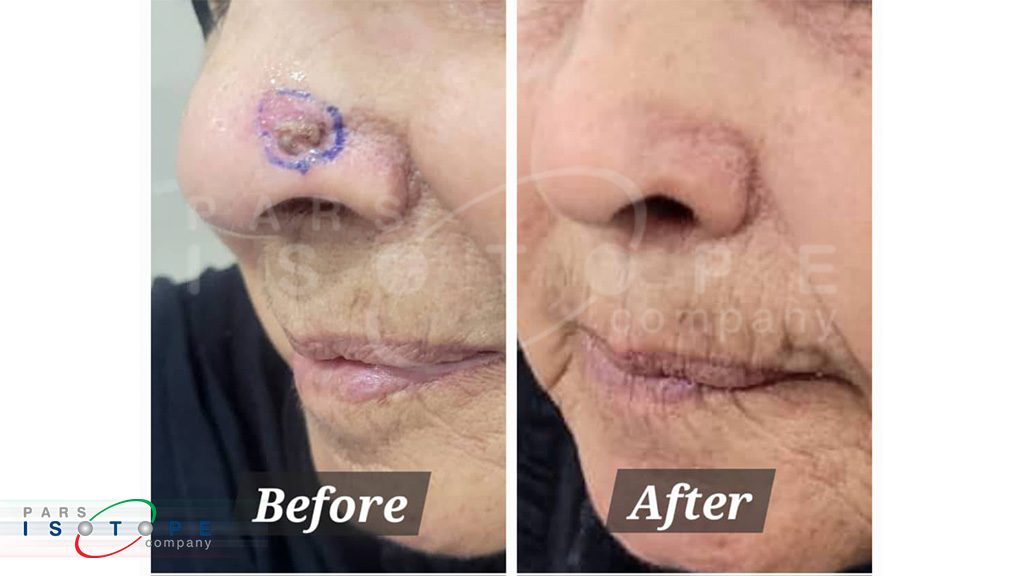Follow Us:
Topical Rhenium-188 for Skin Cancer Treatment
Skin cancer is one of the most common types of cancer worldwide. Non-melanoma skin cancer refers to a group of cancers that slowly develop in the upper layers of the skin. The term ‘non-melanoma’ distinguishes these more common kinds of skin cancer from the less common skin cancer known as melanoma, which spreads faster in the body.
The first sign of non-melanoma skin cancer is usually the appearance of a lump or patch on the skin that doesn’t heal after a few weeks. In most cases, cancerous lumps are red and firm, while cancerous patches are often flat and scaly.
Non-melanoma skin cancers usually develop in the outermost layer of skin (epidermis) and are named after the type of skin cell from which they develop.
There are two most common types of non-melanoma skin cancer:
Basal cell carcinoma (BCC) -begins in the cells lining the bottom of the epidermis and accounts for about 75% of skin cancers.
Squamous cell carcinoma (SCC) – begins in the cells lining the top of the epidermis and accounts for about 20% of skin cancers.
Surgery is one of the treatments for non-melanoma skin cancer. It involves removing the cancerous tumor and some of the surrounding skin. Other treatments for non-melanoma skin cancer include cryotherapy, creams, radiotherapy and chemotherapy.
Topical Rhenium-188 utilizing the Beta emitter radioisotope Rhenium-188 is a brachytherapy for the treatment of Non-Melanoma Skin Cancer. The main objective of the Topical Rhenium-188 is to be a painless, personalized, non-invasive therapy targeting and destroying cancer cells in the area needed to treat. This epidermal radioisotope therapy is based on the local direct cell-killing effect of the beta-radiation, which triggers both the local death of cells and local reactions of the immune system of the body to repair itself.
Rhenium-188 is a radioisotope that emits ß-radiation, which has excellent therapeutic advantages. The emission of ß–particles can penetrate the human tissue only up to 2-3 mm deep. Therefore, rhenium-188 is ideal in treating superficial tissue without affecting other parts of the body. It has a half-life of 17 hours. This allows treatments to be performed in a very short period.
Topical Rhenium-188 produced at Pars Isotope is currently in the clinical trial phase and is successfully passing this stage. After completing the clinical trial stages, it will be available as a therapeutic product.
Patient treatment process from the second to the twelfth week

